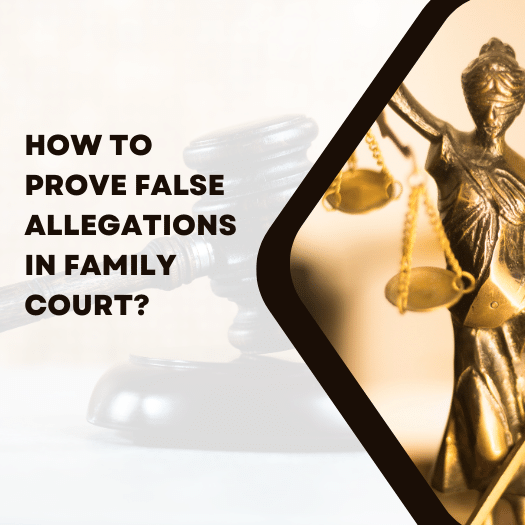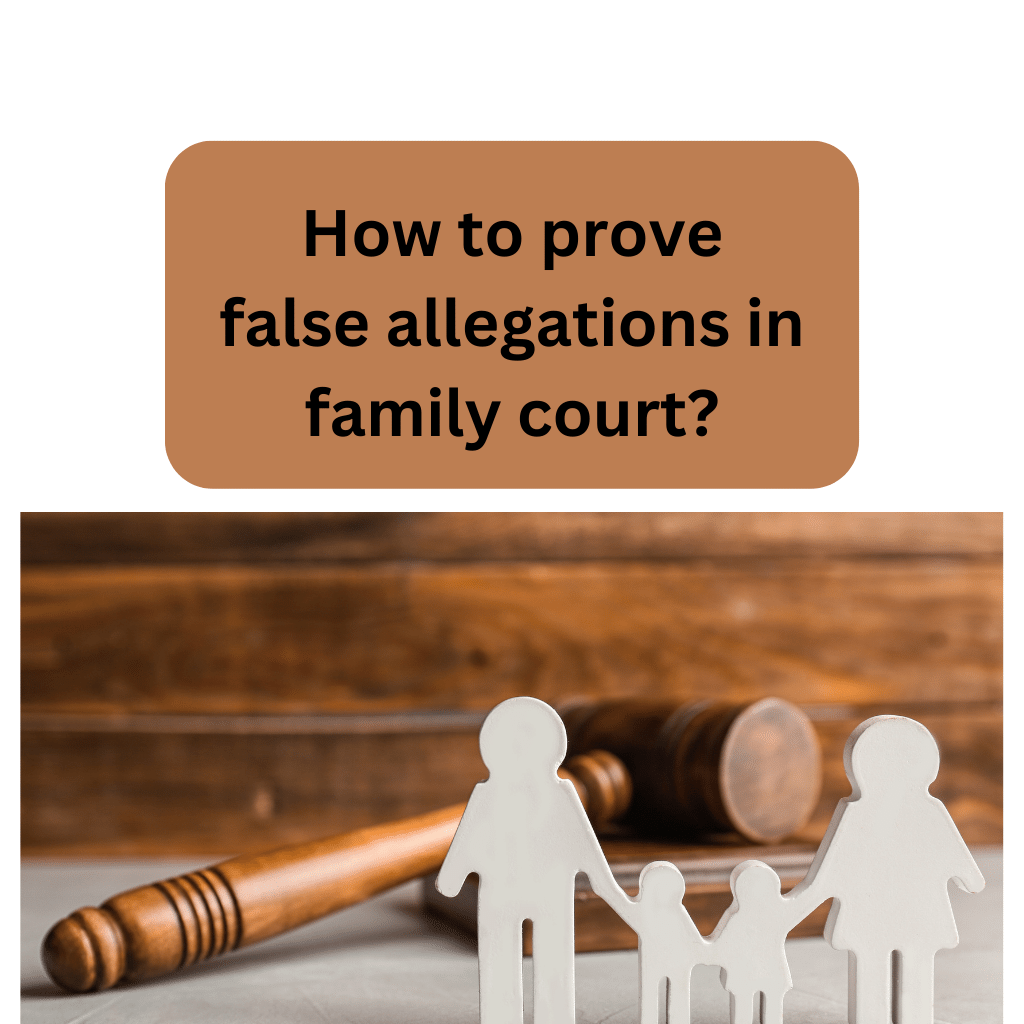How to prove false allegations in family court and uncover the truth?
Family court is meant to provide a safe space for families to resolve conflicts and disputes. However, sometimes false allegations are made which can not only complicate matters but can also damage the reputation of innocent parties. False allegations can arise due to a variety of reasons such as personal vendetta, revenge, or even to gain an advantage in court proceedings. If you are facing false allegations in family court, it is important to know how to prove them wrong. In this article, we will explore some tips and strategies to help you do just that.
What are false allegations?
False allegations are claims made by one party against another party that are untrue. False allegations can be made in various situations such as child custody battles, divorce proceedings, or restraining order hearings. False allegations can range from accusations of domestic violence to allegations of child abuse, neglect, or even drug abuse. False allegations can have serious consequences, and if not proven wrong, they can affect the outcome of court proceedings.
How to prove false allegations in family court?
Proving false allegations in family court can be a challenging and stressful experience. However, there are several tips and strategies that can help you prove your innocence. Here are some effective ways to prove false allegations in family court:
- Gather evidence
The most important step in proving false allegations in family court is to gather evidence. Evidence can be in the form of witnesses, documents, recordings, or even photographs. Evidence can help you to prove your innocence and can weaken the credibility of false allegations. If possible, try to gather as much evidence as you can to prove your case.
- Seek legal advice
If you are facing false allegations in family court, it is important to seek legal advice from a qualified attorney. An attorney can help you to understand your legal rights and can guide you through the court proceedings. A good attorney can also help you to gather evidence and can represent you in court.
- Keep calm and composed
It is important to remain calm and composed when facing false allegations in family court. It can be a stressful and emotional experience, but losing your temper or getting emotional can weaken your case. Try to stay focused and composed and present your case logically and factually.
- Hire a private investigator
If you are facing false allegations, hiring a private investigator can be an effective way to gather evidence. A private investigator can help you to gather information and evidence that can prove your innocence. They can also provide you with witness statements, photographs, and other evidence that can be presented in court.
- Cross-examine witnesses
If there are witnesses involved in the false allegations, cross-examining them can be an effective way to prove your case. Cross-examination can help you to expose inconsistencies in their statements and can help you to weaken their credibility.
- Provide alibis
If you have alibis that can prove your innocence, make sure to provide them in court. Alibis can be in the form of witness statements, photographs, or even receipts. Alibis can help you to prove that you were not at the location where the alleged incident took place.
- Counter the false allegations
If false allegations are made against you, it is important to counter them. You can do this by providing evidence that contradicts the false allegations. You can also provide witness statements or other evidence that supports your case.
FAQs
Q: What if I don’t have any evidence to prove my innocence?
If you don’t have any evidence to prove your innocence, it can be challenging to prove false allegations. However, you can still present your case logically and factually. You can also seek legal advice from an attorney who can guide you through the court proceedings.
Q: What if the false allegations are made by a family member or spouse?
If false allegations are made by a family member or spouse, it can be emotionally challenging to prove your innocence. However, it is important to remain calm and composed and present your case logically and factually. You can also seek legal advice from an attorney who can guide you through the court proceedings.
Q: Can false allegations be punished?
Yes, false allegations can be punished. If false allegations are made knowingly and with malicious intent, it can be considered perjury, which is a criminal offense. Perjury can result in fines and even imprisonment.
Q: How can character witnesses help prove false allegations in family court?
Character witnesses can help prove false allegations in family court by testifying to your character and reputation. They can provide evidence of your good conduct and behavior, which can help disprove false allegations made against you. Character witnesses can include family members, friends, colleagues, and others who know you well and can vouch for your character.
Q: Can social media be used as evidence to prove false allegations in family court?
Yes, social media can be used as evidence to prove false allegations in family court. Social media posts, messages, and photos can provide valuable evidence to disprove false allegations made against you. However, it is important to note that social media evidence can be subject to manipulation and may not always be reliable.
Q: What should I do if the false allegations are affecting my job or business?
If false allegations are affecting your job or business, it is important to take action to protect your reputation and livelihood. You can seek legal advice from an attorney who can guide you through the process of clearing your name and seeking compensation for any damages or losses you may have incurred. You can also consider reaching out to your employer or business partners and explaining the situation to them.
Q: What if the false allegations are made by a child or a minor?
If false allegations are made by a child or a minor, it can be a delicate and challenging situation. It is important to handle such cases with care and sensitivity, taking into account the child’s age and emotional state. You can seek legal advice from an attorney who specialises in family law and child custody cases. It may also be helpful to seek the advice of a counsellor or therapist who can help you and your family navigate the emotional aspects of the situation.
Conclusion
False allegations in family court can be challenging and emotionally draining. However, it is important to know how to prove them wrong to protect your reputation and legal rights. Gathering evidence, seeking legal advice, remaining calm and composed, and presenting your case logically and factually are some effective ways to prove false allegations in family court. Remember to counter false allegations and provide alibis if possible. By following these tips and strategies, you can increase your chances of proving your innocence in family court.
Read more blogs by visiting the link below:
https://family-fitness-fun.com/how-to-accept-family-sharing-invite/





